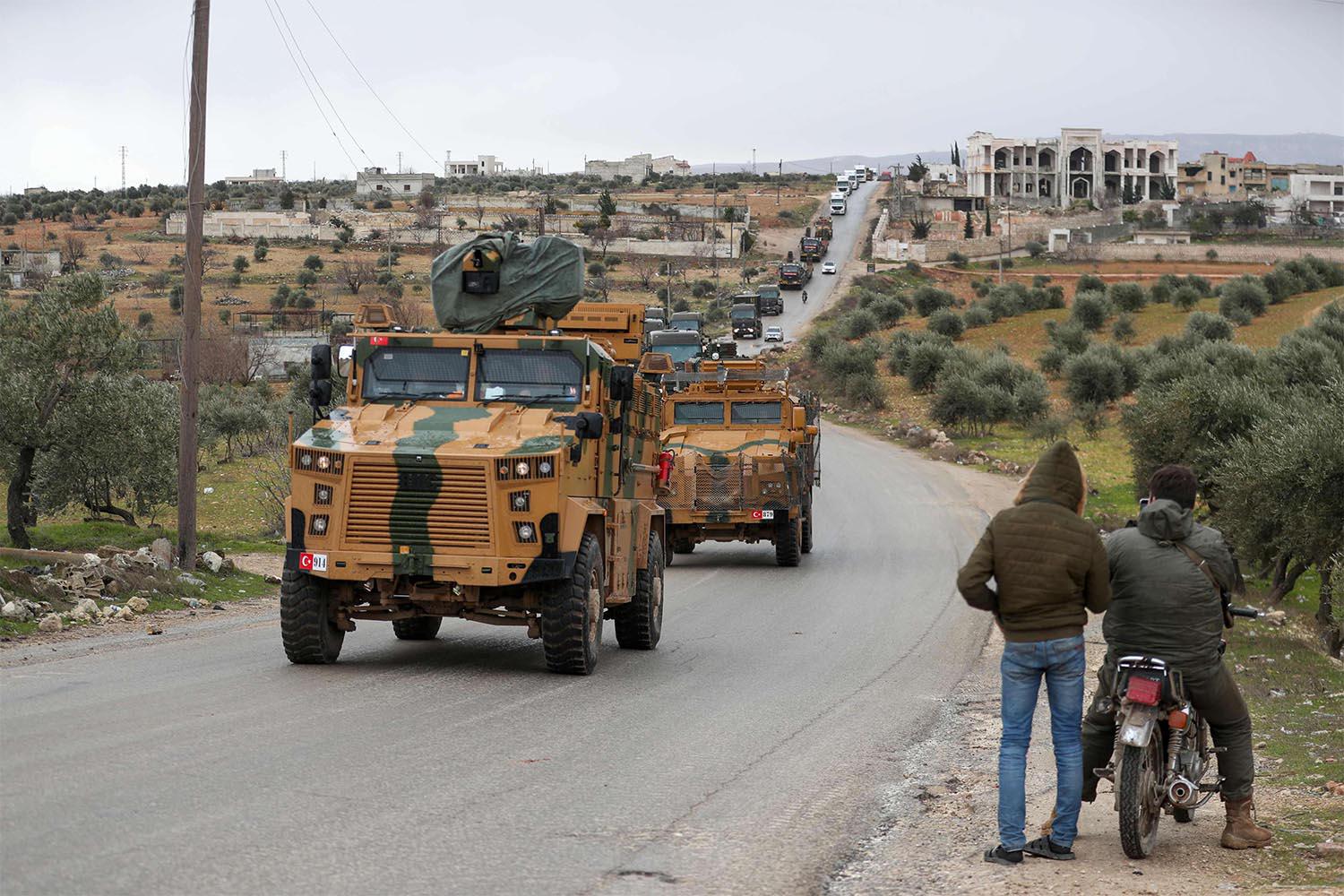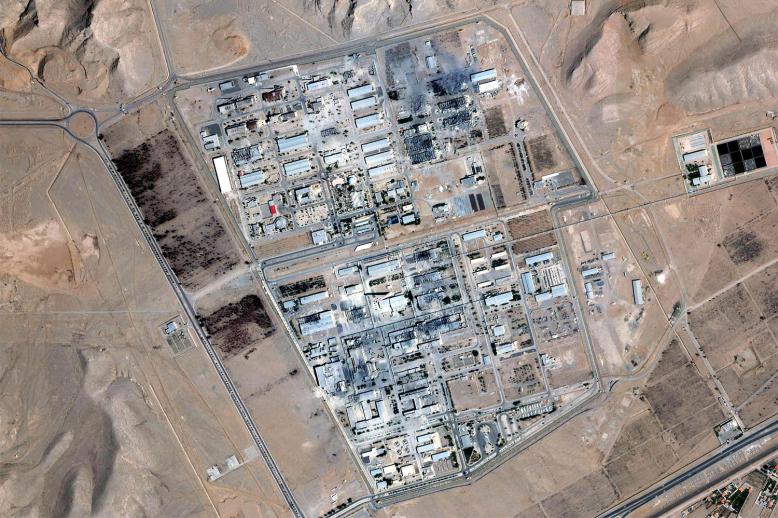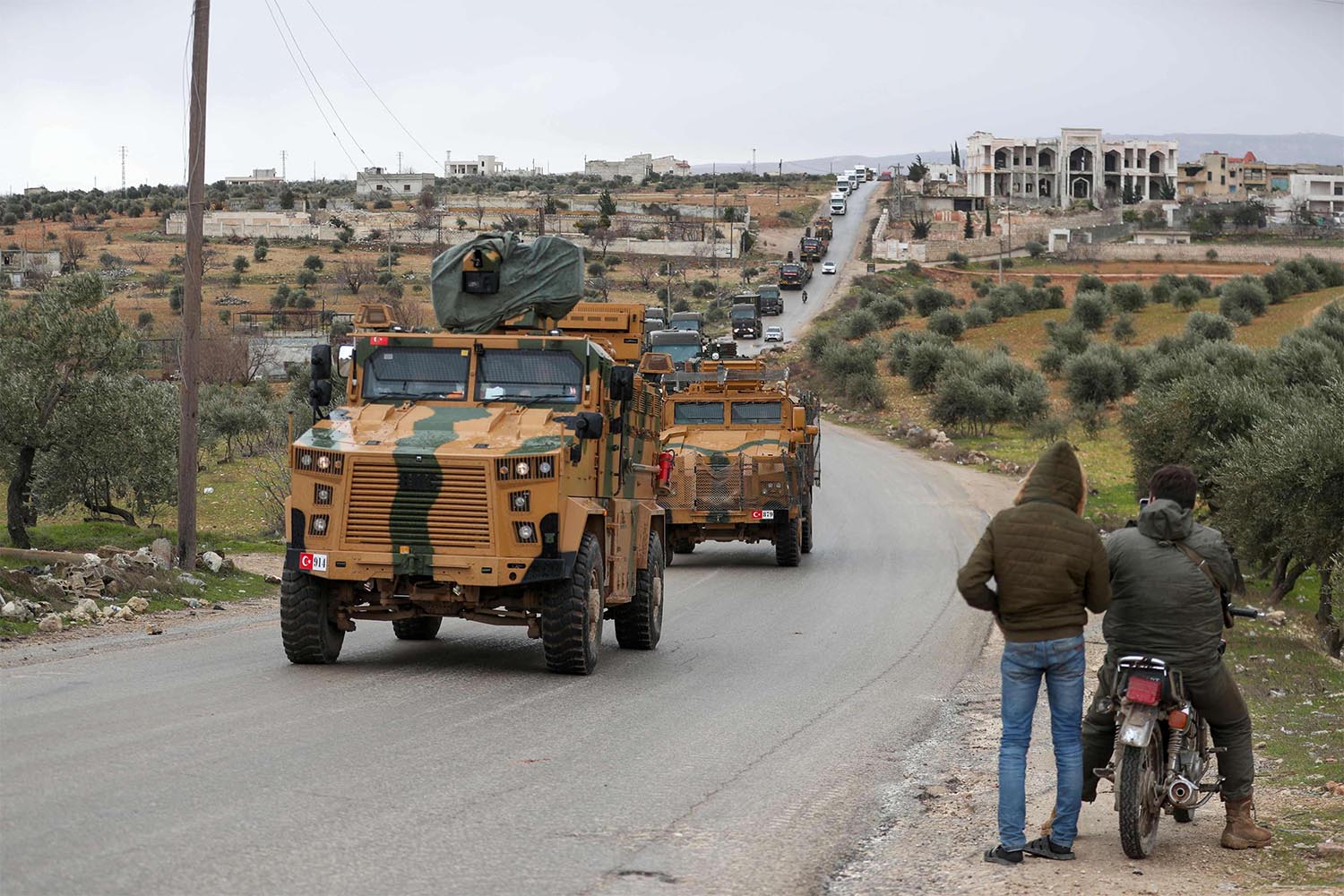Fight for Idlib exposes Turkish-Russian fault lines
ISTANBUL — Fresh fighting in Idlib province exposed deep fault lines in the Turkish-Russian alliance in Syria, throwing the future of the entente into question.
At least eight Turkish and 13 Syrian servicemen died in an exchange of fire between forces of the two neighbours near the town of Saraqib in Idlib in the early hours of February 3. Turkey sent troops and hundreds of military vehicles, including battle tanks, over the border into Idlib the day before to protect 12 Turkish military posts and to confront the advancing Syrian Army.
Speaking two days after the escalation, Turkish President Recep Tayyip Erdogan said he was giving Damascus until the end of February to pull back from areas near Turkish observation posts.
However, Syrian President Bashar Assad, who vowed to take control of Idlib, appeared to ignore Erdogan’s warning. His troops reached Saraqib and Ankara said three of its 12 outposts — all in the south-eastern part of the region — were encircled by Syrian forces. The Syrian Observatory for Human Rights said Syrian troops brought the complete Idlib section of the strategically important M5 highway under their control.
Unlike previous Syria interventions by Ankara, Turkey’s latest move into Idlib is said to have come as a surprise to the Kremlin. Russia, the biggest military power in Syria and Assad’s main international backer, said Turkey’s incursion into Idlib had not been cleared with Moscow.
Orhan Gafarli, Russia analyst at the Ankara Policy Centre think-tank, said the escalation in Idlib would have a negative effect on Turkish-Russian relations. “There is a certain cooling of relations,” he said by telephone.
However, Gafarli said he did not expect a rupture of the alliance. Turkey and Russia have till now cooperated closely in Syria, fueling concerns in the West that Turkey is turning away from its traditional allies in Europe and the United States.
Erdogan said he saw no reason to “trigger a serious confrontation with Russia” given their “numerous strategic initiatives.”
However, Gonul Tol, director of the Centre for Turkish Studies at the Middle East Institute in Washington, said: “Ankara failed to see that what made Russia sympathetic to Turkish goals and incursions in Syria was largely the presence of US troops and that, once they leave, Russia would have little reason to tolerate Turkey’s actions.”
Even though there does not seem to be a risk for now of Turkey and Russia totally parting ways or clashing in Syria, the situation in Idlib is likely to constitute a growing challenge for the relationship between Ankara and Moscow as the fighting in the province highlights conflicting interests in Syria, analysts said.
“Idlib is where the rubber meets the road,” Michael Tanchum, a senior fellow at the Austrian Institute for European and Security Policy, a think-tank in Vienna, wrote on Twitter.
Gafarli said it might be possible for Turkey, Russia and Assad to find a solution for the current confrontation in Idlib, with Russia acting as a go-between to organise a deal between Ankara and Damascus. “But a bad scenario with new fighting is also possible,” he said.
The fighting in Idlib offered a rare opportunity for Washington, Turkey’s traditional main partner whose influence in Ankara has waned with the ascendency of Russia’s role, to offer unequivocal support to Ankara and to try to drive a wedge between Turkey and Russia.
Thomas Seibert is an Arab Weekly contributor in Istanbul.
Copyright ©2020 The Arab Weekly






